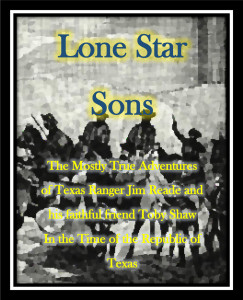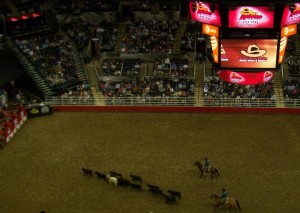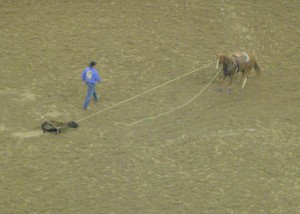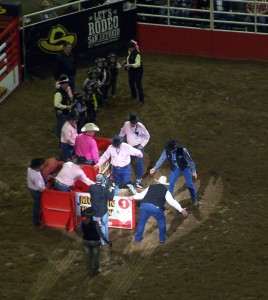One of the most well-known western gunslingers of the post-Civil-War Wild West – if not one of the most storied – is also the one of whom extraordinarily little is known. His life was also brief, which continues to give all kinds of story-telling latitude to writers of pulp fiction, movie makers and musicians. An impulsive sociopath, or just an unfortunate teenager with extremely bad luck in choosing friends? Even his name and date of birth are open to considerable question; his given name was William Henry, later shortened to Billy, but his surname varied between McCarty, Antrim or Bonney, depending on the year and circumstance. His mother was an immigrant Irishwoman, Catherine McCarty, either a single mother or a Civil War widow. After the War, Catherine married, or married again – to William Antrim, who took his wife and her son west to Wichita and then to Silver City, New Mexico. Catherine McCarty Antrim kept a boarding house there until she died of tuberculosis in 1874. It appeared that William Antrim had no interest in family life; Billy and his younger brother were left more or less to their own devices.
The young Billy McCarty/Antrim was not seen as juvenile hell-raiser by anyone in Silver City at first. He was described as being no more of a handful than any other boy his age; bright and rather charming, fond of music and books. Curiously enough for the time and his station in life, he was also literate and had good handwriting. Billy made friends easily, especially with the ladies. Everyone wanted to think the best of him; long afterwards one of his friends wrote that he “seemed as gentlemanly as a college-bred youth … because of his humorous and pleasing personality grew to be a community favorite.” He also was a very good shot with a revolver – only to be expected of someone who had a natural skill and practiced a lot.
Alas, he drifted into bad company when still in his early teens – a tendency which would be repeated several times. He was arrested for stealing a bundle of clothing from a local Chinese laundry; a prank in which he may have been set up by his friends. He was caught at once and locked up. The sheriff might have known of the prank and intended to ‘scare him straight’ by locking Billy up, but instead of being reformed by the experience, Billy escaped from jail and left Silver City at speed. He drifted around for a couple of years, working as an itinerant ranch hand. He may have spent time in Mexico, thereby acquiring fluency in Spanish. By then, he was known as the ‘Antrim Kid’, and earning a living at Camp Grant, Arizona – a military post, as a teamster and general errand-runner. There he ran into trouble again, at the age of 16 or 17. In a physical altercation, Billy pulled a revolver and mortally wounded the other man; a muscular tough with a bad reputation. Likely a plea of self-defense would have been upheld, but Billy panicked, grabbed the nearest horse and departed town in a cloud of dust.
Wanted for murder, he found a new group of friends even less savory; a loose association of toughs known as the ‘Boys’, who specialized in livestock theft across a swath of southern New Mexico, a method of enterprise interspersed with public brawling, flamboyant gun-play and drunkenly harassing the relatively more law-abiding. Eventually with the attention of local law enforcement falling upon the ‘Boys’ they drifted into Lincoln County, New Mexico Territory, where a brewing range and mercantile war offered a more serious diversion.
Political and economic life in Lincoln County was dominated by James Dolan, and his partner Lawrence Murphy, who owned the largest – and indeed the only – general store in the town of Lincoln. Dolan and Murphy were well-established, well-connected and becoming very wealthy from that retail monopoly and on supplying beef to local Army garrisons and the Indian reservations. They took badly to being challenged by a wealthy expatriate Englishman, rancher John Tunstall, and his business partner, lawyer Alexander McSween. Tunstall and McSween were new to the area, but they were already a threat to Dolan and Murphy – who did not handle threats to their economic and political dominance well. There may also have been an element of ethnic resentment between Irish Dolan and Murphy, and the Englishman Tunstall. Tunstall and McSween fired the opening shot in what developed into open war in the streets of Lincoln by opening a competing general store.
Dolan and Murphy’s monopoly on business and on the beef-supply contract were also furiously resented by another big cattle rancher, John Chisum, who backed Tunstall and McSween. One might have thought that a county that comprised nearly a quarter of the territory would have been big enough for all parties. One would have been wrong. Ranchers and farmers took sides as past resentments and circumstances led them. Some – resentful of Chisum’s herds crowding their own out of public grazing lands – took the side of Dolan and Murphy. Others, infuriated at being skinned economically, took the side of Tunstall, Chisum and McSween – even though Dolan, through connections with corrupt territorial officials, also controlled what passed for law enforcement in Lincoln County. The sheriff – William Brady – did Dolan’s bidding. The ‘Boys’ fell in with the Dolan faction, but Billy, the ever-charming, made friends with Tunstall ranch employees and Tunstall himself; this followed on an attempt at stealing some of Tunstall’s horses. It might be that Tunstall offered Billy a job in order to keep him close, as a potential witness against Dolan … or in part because of an understating that Tunstall’s hands were hired on the basis of their ability with firearms and willingness to use them, at least as much for skill at tending livestock.
Some versions of the Billy the Kid story suggest that Tunstall was a substitute father-figure, reining in an otherwise impulsive and reckless lost boy. But Tunstall was in his early twenties, and Billy only worked ten months or so on the ranch. During much of that time Tunstall was away in Lincoln or Mesilla. The simpler answer might be that this was Billy’s last chance to straighten out his life, and walk back from the petty criminality which had marred it so far; doing honest work for an upright and respectable man. Whatever the reason, Billy’s loyalty to Tunstall became absolute and unswerving – with dire consequences.
Early in the spring of 1878, Dolan struck back against Tunstall and McSween, procuring a court order attaching property owned by McSween in payment of a large debt to do with McSween’s legal practice. Sheriff Brady obediently ransacked the store and McSween’s home. Assuming – perhaps maliciously – that since that McSween was also Tunstall’s business partner in the general store, the writ extended to Tunstall, Brady authorized a posse to go out to the Tunstall ranch and seize some of Tunstall’s horse herd. The leader of the posse was a friend of Brady’s – a hot-tempered man named William Morton – and also part of the Dolan faction. Other members of the posse were less than upright and stalwart citizens; in the resulting confrontation at the ranch, Tunstall was murdered in cold blood blood by Morton. An unconvincing attempt by the posse members to convince others that Tunstall had been resisting arrest only added insult to injury. Tunstall’s friends, allies and employees were outraged. Most of them had been involved in the Lincoln County vendetta for far longer than Billy – the fatally impulsive saddle-tramp with a talent for gun-play. His first attempt to act on his anger – trying to arrest some members of Morton’s posse – ended in humiliation, when Sheriff Brady arrested him, confiscating his rifle, and locked him in the jail. Jail and Billy did not agree – as had been proved and would be again, several times.
On release, Billy joined with Tunstall’s friends and ranch hands – led by Tunstall’s ranch foreman, Richard Brewer – in a legal posse to hunt for the murderers, who had scattered into the rough country near the Rio Penasco, miles from Lincoln. They called themselves the Regulators (a name with a certain pedigree in Texas). Following a running gunfight, they captured Morton and one of Brady’s deputies who had been implicated in the Tunstall murder. They surrendered to Brewer, who promised them he would return them to Lincoln, alive and unharmed. Unfortunately, on the return journey, Billy’s fierce loyalties and bad impulse-control led him astray once more. He and another Regulator gunned down the captives in cold blood – along with a Regulator who apparently had tried to protect them. (Or the man had been a Dolan sympathizer to begin with.)
Shortly afterwards, Sheriff Brady and two deputies attempted to arrest Billy for on the murder charge. Billy and five Regulators forted up in the Tunstall & McSween store building, and when Brady and his deputies approached the store, Brady and one deputy fell in a hail of fire. The rifle Brady carried was the same one he had confiscated earlier from Billy – and when Billy dashed out to retrieve his property, the surviving deputy snapped off a quick shot at him. Wounded, Billy hid in town instead of skedaddling. The surviving lawmen of Lincoln ransacked the place, searching for him. One story has it that he was hiding in the house of one of his Mexican friends – inside a barrel, while a woman rolled out tortillas on the top of the barrel and the deputies searched the house. Tit for tat violence claimed nearly a dozen lives – even the U.S. Army got involved, after some Regulators exchanged gunfire with cavalry troopers.
The final spasm of violence and the one which put a final end to Billy’s stay in Lincoln was a siege of McSween’s own home, an adobe house built like a fortress, on the only street in Lincoln. McSween, his wife, Billy and a small number of their Regulator friends barricaded up against an assault by the Dolin faction, directed by a new sheriff. The siege ground on for four days, in a sporadic exchange of gunfire with the only casualties being some livestock and Alexander McSween’s rapidly unraveling nerves. On the fifth day, the sheriff demanded surrender; upon refusal, the forces of law and order piled kindling against the wooden doors and window frames of the house and set fire to them. The flames spread insidiously throughout the day to ceiling beams, floors and other flammable fittings. Billy persuaded Mrs. McSween to leave, certain that she as a woman would not be harmed. He kept up defense of the McSween establishment even as the owner of it gave up. Alexander McSween refused to use a gun throughout the siege, on the grounds that his life insurance policy would be invalidated, apparently not grasping the concept that this was a moot point, under the circumstances. By late evening, the house was filled with thick smoke. Time to leave or die, choking on it; Billy told McSween that he and two Regulators would make a break for safety, running from the back of the smoldering house to cover in the thick brush along the banks of a little creek, no more than a couple of hundred yards away. They would provide a diversion – under cover of which the others could follow. McSween hesitated at the last moment, framed in the doorway of a burning house which made the area around as bright as day. An easy target – and the Lincoln County War claimed Billy’s second employer.
There went all possibility of settling down to a more or less respectable and law-abiding life. His friends and employers were dead or in hiding – and he had made implacable enemies in Lincoln County. Such was his notoriety that he had no refuge in obscurity, as did most of the surviving Regulators. He spent the next three years on the run, sheltered and protected by those friends that he did have – many of them in the overlooked and downtrodden Mexican community, while reverting to petty thievery and stock-rustling of the sort that the ‘Boys’ had been notorious for. Likely, this propensity destroyed any chances of amnesty for him. He was captured and escaped from jail once again, which sealed his fate, for in that escape he murdered a law officer. When he was finally run to ground in Fort Sumner by Pat Garrett in the summer of 1881, he was just barely 21 years of age, but in a bare half-dozen years, he had acquired a reputation which equaled or bettered men who had lived the life of a western shootist for decades longer.
(Other survivors of the Lincoln County War fared a little better than Billy. One of the main instigators of the war itself, Murphy died of cancer in 1878, just as it was ramping up. His partner Dolan was indicted for the murder of Tunstall, but acquitted – and eventually wound up owning much of Tunstall’s ranch property. It is thought that he instigated the murder of Mrs. McSween’s lawyer, a year to the day after Tunstall’s murder. Mrs. McSween, a woman of considerable resource, had hired the lawyer to pursue those responsible for the death of her husband. Undaunted, she acquired considerable landholdings in the Three Rivers area, and prospered as a cattle rancher herself, living until 1931. John Chisum also died rich and respectable – of old age and still a power in New Mexico.)





Recent Comments